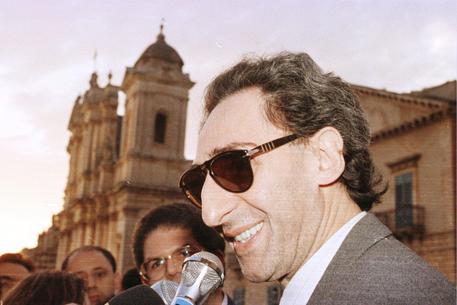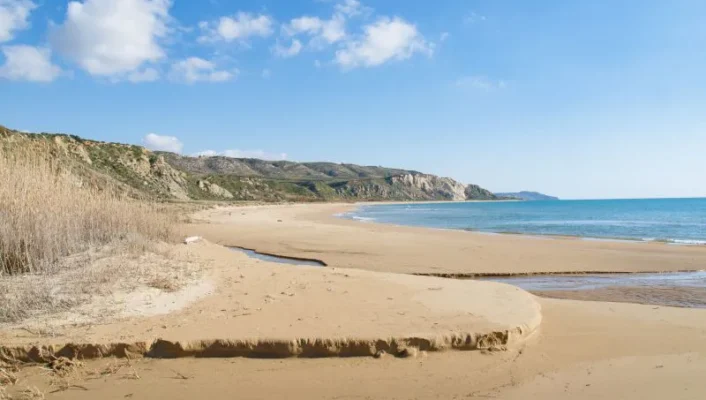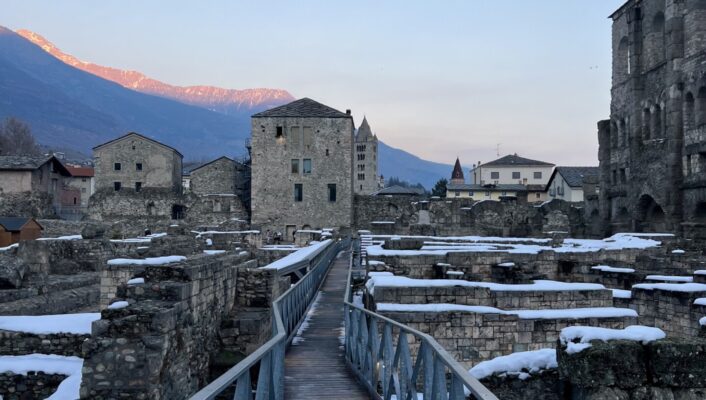Franco Battiato’s music has seen Italians from the beautiful illusions of the 70s through to the flamboyant 80s, and has endured as a household favorite ever since. Much has already been written about this staple of Italian music and pop culture, but now, on the second anniversary of his death, it feels fitting to pay homage to this prolific man. And there is no way to pay homage to Battiato without also mentioning his birthplace and home, Sicily.
Battiato has a definitive style all his own, mashing cultural influences in a way that feels natural for somebody who grew up in Sicily. It is no coincidence that Battiatio’s fascination with non-Western cultures came from an island that has historically been a theater for different civilizations, and remains to this day a beacon of multiculturality in Italy. Sicily is a historic melting pot, with an ancient appeal upon which Battiato drew heavily and which he used as a springboard towards even more millenary destinations, such as the Middle East and Asia.
Songs like “Stranizza D’Amuri”, sung in Sicilian, or “Secondo Imbrunire”, set in Sicily, describe this fascination:
“Courtyards and ancient wells
Cortili e pozzi antichi
Among the pomegranates
Tra i melograni
Norman-style churches
Chiese in stile normanno”
He changed his musical skin like a snake. He played pop, disco, progressive rock, psychedelic, opera, and much more, but not because he wanted to change. Rather, I would say, because he was able to understand the cultural zeitgeist around him and channel it through his music. He was making kosmische musik when the Germans were, and he produced contemporary opera around the same time Philip Glass was writing too. In doing so, Battiato developed a very personal language, with a strong inclination for orientalism and spirituality, mostly sung through symbols and allegories that harked back to Middle Eastern tradition. With his unique style, he charmed legions of fans around the world, and produced very complex music alongside mainstream pop.

His work almost always nods to “Oriental” tradition, often mixed with Western influences and hippie-pop language; esoteric “flower child” references are peppered throughout his lyrics. His songs speak of trips to Kathmandu, dervishes dancers, Kathakali women, Sufism, Ethiopia, Russian boulevards, trains to Istanbul, the philosophy of Rene Guénon, and much much more. (Guénon believed that one of the most evident signs of humanity’s spiritual regression is the tendency towards a growing materialism which is expressed, among other things, by obsessive narcissism. Despite being quite famous, Battiato avoided the star system, abstracting himself as much as possible from this world.)
His work is definitely a product of its time–I can’t imagine a contemporary musician fascinated by the same subject matter, which is very much coded with a 1970s bohemian aesthetic.
The second trademark of Battiato’s production is the lens through which he seems to observe the world around him–landing somewhere between bewildered and curious. His music evokes a tension between the spiritual, inner world and everyday mundane human existence, all flesh, bodies, and desires–a tone that feels definitively Sicilian in its tension between visceral passion and appreciation of simple beauty. It is precisely this tension that makes his oeuvres so enduringly beautiful, and entirely human. This concept is perfectly captured in the lyrics of his songs, such as “Centro Di Gravità Permanente”, or in “L’Animale” when he sings: “The animal inside me, does not allow me to be happy, it makes me slave of my passions, and wants you.”
After exploring more cosmic musical themes and influences in the 1970s, the musician came back down to earth, so to speak, and turned his attention once again to Sicily. It’s then that he produced the triptych of records that are widely considered his most iconic and best work: “L’era del cinghiale bianco”, “Patriots”, and “La Voce del padrone.” These were–and still remain–must-have records for every so-called Italian music connoisseur.

Between the 70s and the 80s, Battiato’s music was very much rooted in real places: Venezia-Istanbul, hotels in Tunisia, Albania, Siberia, Russia, Iraq, Turkey. In these places Battiato was inspired by ancient civilisations and the knowledge they held. Songs like “Meccaniche Celesti” and “Cucurrucucu”, among others, clearly draw on these influences. Superficially, these songs may sound silly or poppy, but in reality they showcased the political climate of the time, and are imbued with cultural lore. Just think of a song like “Magic Shop” in which the artist makes fun of the all-70s obsession with pret-a-porter spirituality. His irreverence is evident in lyrics like, “A lady sells astral bodies/ Buddhas go on top of bedside tables.”
After the famous triptych, and through the 80s, Battiato released more albums–this time, less successful but equally fundamental. The records became more intimate (Orizzonti Perduti), while maintaining an esoteric and irreverent commentary on the absurdity of the world (Scalo a Grado). Battiato filled every stadium, produced other musicians, and appeared on television, using irony as a tool to navigate the star system. In the 90s, he continued experimenting with sound, incorporating rock and metaphysical elements, achieving success with songs like “Di Passaggio” and “La Cura.” His 1998 album “Gommalacca” holds a special place in my heart: I used to record his videos from MTV and watch them over and over again. Battiato held his own in the likes of international contemporary bands who swept the world in those years.
Throughout his prolific career that spanned three decades, 30 records, and innumerable genre mashups, Battiato’s enduring charm is in what, I think, also makes him so quintessentially Sicilian: like his home island, Battiato’s music is complex, at once hard to pinpoint and extremely distinctive. It is a tapestry of cultural influences, with a deep, mystical spirituality and raw emotion that can only come when one has experienced the layered and diverse reality of a place like Sicily. And it is precisely for this that he will continue to live on, after his death. As he himself sings:
“Citizens of the world
They seek a land without borders
Life doesn’t end
It’s like the dream
Birth is like awakening
Until we are free
We will be back again
Again and again”







